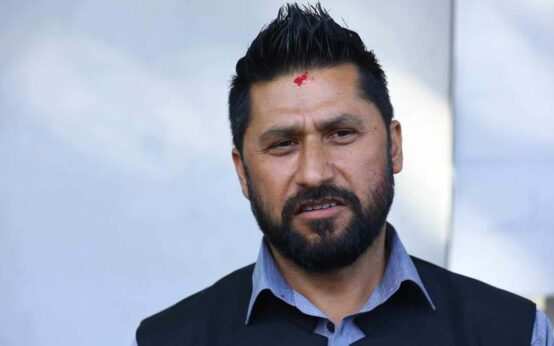Kathmandu Mayor Balen Shah has ignited a political firestorm by publicly rejecting an invitation to a Republic Day event hosted by Prime Minister KP Sharma Oli, leveling serious accusations of corruption against the current political system. Shah’s defiant stance, encapsulated in a Facebook post that has gone viral, has resonated with a segment of the public disillusioned with the status quo.
In his post, Shah questioned the rationale behind attending an event hosted by a leader he perceives as the “head” of a corrupt system. He wrote, “In a country where all parties unite to protect the corrupt when the capital’s mayor tries to stop it, should I attend the program of its leader? Sorry KP Oli, I don’t support your corrupt system.”
Direct Accusation: “I Don’t Support Your Corrupt System”
in a bold and unapologetic statement, Balen Shah directly addressed Prime Minister Oli, declaring, “Sorry KP Oli, I don’t support your corrupt system.” Moreover, he questioned the fundamental logic of attending events organized by a leadership he perceives as actively shielding corrupt individuals. Consequently, this direct confrontation, characterized by its sharp and uncompromising tone, has sent shockwaves through Nepal’s political landscape, immediately capturing national attention and sparking intense debate.

The Trigger Exclusion from Republic Day Committee Meeting
Specifically, the catalyst for Shah’s outspoken reaction was his reported absence from the Republic Day main organizing committee meeting, which convened at the Prime Minister’s Office in Singha Durbar. Following this absence, Prime Minister Oli, reportedly expressing his dissatisfaction with Shah’s non-attendance, issued a directive to relevant authorities, notably including the Home Ministry. In this directive, Oli instructed them not to extend invitations to Shah for future events nor to include him in any such committees. Consequently, Shah’s social media post emerged as a direct and immediate response to this perceived snub, unequivocally signaling his refusal to be silenced or marginalized.
Reaffirming His Anti-Corruption Stance
Furthermore, Shah’s message served to underscore his unwavering commitment to the critical fight against corruption. To illustrate his point, he posed a powerful rhetorical question, directly challenging the rationale behind his participation in a program spearheaded by individuals he believes are actively engaged in protecting corrupt elements. Given his own ongoing efforts, as the elected mayor of the capital city, to root out corruption at the local level, Shah implied a fundamental conflict of interest and principle. Therefore, this assertive statement not only clarified his absence but also powerfully reinforced his public image as a leader unafraid to challenge established norms and deeply entrenched power structures in his pursuit of a cleaner governance system.

A Clash of Leadership Styles and Political Agendas
This incident has once again highlighted the simmering tension between the central government and independent local leadership. It underscores the growing divide between traditional political figures and a new generation of leaders who are increasingly vocal about their dissatisfaction with the status quo. Shah’s defiant stance signals a potential shift in Nepal’s political dynamics, where local leaders are less willing to conform to established norms.
Public Reaction and Political Implications
Shah’s strong words resonated with a segment of the public increasingly frustrated by the perceived corruption and lack of accountability in the political system. His direct challenge to a veteran political figure like KP Oli met with both praise and criticism, sparking a national debate about leadership, corruption, and the future of Nepali politics.The incident is likely to have significant political implications, potentially reshaping the relationship between local and national leaders and influencing the broader political discourse in Nepal.


 Rabi Lamichhane Released on Bail, But Legal Battles Continue
Rabi Lamichhane Released on Bail, But Legal Battles Continue